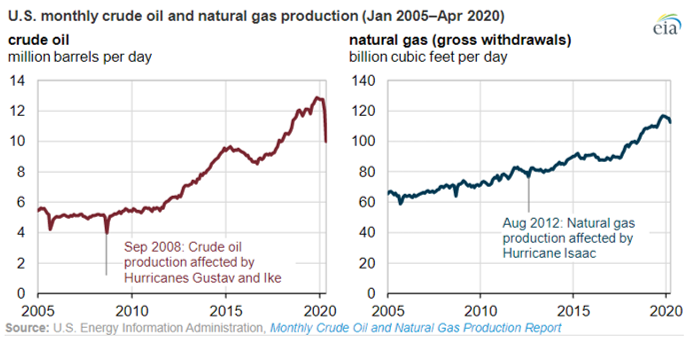Deutsch: Datensätze für Nutzen, mit mikro-ökonomischen Variablen über Schweizerische Unternehmen
Français: Jeux de données contenant des variables micro-économiques d’entreprises suisses
Hello to the whole community,
There are currently several research projects at the University of Bern, one of whose ultimate goals is to quantify the economic effect of Open Government Data OGD in Switzerland (after a part of theoretical development), by econometric and machine learning methods.
Does anyone know of datasets containing economic variables on organizations in Switzerland? This at the level of their performance and characteristics (like turnover, investment level, …), and if possible with a variable related to OGD (but also without). The level of aggregation would preferably be the level of individual firms, but the communal or cantonal level would also be useful.
It would be really useful to merge several datasets in oder to quantify some of the benefits of OGD, which is not yet done in the scientific literature. Recommendations could then be made to foster sustainable value for everyone.
I have already found for example concerning the Federal Statistical Office the following appropriate statistics. For businesses:
- Structural Business Statistics (STATENT)
- Business demography statistics
- Enterprise group statistics STAGRE
- (Customs data)
- (VAT registers)
- Business and establishment register BUR
- (Debt collection and bankruptcy statistics)
For individuals:
- Swiss Labour Force Survey ESPA
- Structural survey RS
- Swiss Survey on the Structure of Earnings ESS
- Value added statistics
- Statistics on Income and Living Conditions SILC
- (Statistics on the turnover of services)
- Employment statistics STATEM
Deutsch
Hallo an die gesamte Gemeinschaft,
An der Universität Bern gibt es mehrere Forschungsprojekte, die unter anderem zum Ziel haben, die wirtschaftlichen Auswirkungen von Open Government Data OGD in der Schweiz (nach einer gewissen theoretischen Entwicklung) mit ökonometrischen und machine learning Methoden zu quantifizieren.
Kennt jemand Datensätze mit Mikro-ökonomischen Variablen zu Organisationen in der Schweiz? Dies auf der Ebene ihrer Leistung und ihrer Merkmale (wie Umsatz, Höhe der Investitionen, …) und wenn möglich mit einer Variablen, die sich auf die BBS bezieht (aber auch ohne). Die Aggregationsebene ist vorzugsweise die Ebene der einzelnen Unternehmen, aber auch die kommunale oder kantonale Ebene wäre sinnvoll.
Es würde wirklich wertvoll sein mehrere Datensätze zusammenzuführen, um einen Teil des Nutzens von OGD zu quantifizieren, was in der wissenschaftlichen Literatur noch nicht gemacht ist. Da könnten Empfehlungen gebildet werden, um die OGD-Vorteile für alle zu fördern.
Für das BFS habe ich zum Beispiel bereits die folgenden relevanten Statistiken gefunden. Für Unternehmen:
- Strukturelle Unternehmensstatistik (STATENT)
- Statistik der Unternehmensdemografie UDEMO
- Unternehmensgruppenstatistik STAGRE
- (Angaben des Zolls)
- (MwSt.-Register)
- Unternehmens- und Betriebsregister BUR
- (Inkasso und Konkursstatistik)
Für Einzelpersonen:
- Schweizerische Arbeitskräfteerhebung SAKE
- Strukturelle Erhebung RS
- Schweizerische Erwerbsstrukturerhebung ESS
- Wertschöpfungsstatistiken
- Statistik über Einkommen und Lebensbedingungen SILC
- (Statistik über den Umsatz im Dienstleistungssektor)
- Statistiken zur Beschäftigung STATEM
Français
Bonjour à toute la communauté,
Il s’agit de plusieurs projets de recherche à l’Université de Berne dont un des objectifs à terme est de quantifier l’effet économique des Open Government Data OGD en Suisse (après une partie de développement théorique), par des méthodes économétriques et de machine learning.
Est-ce que quelqu’un connaît des jeux de données contenant des variables économiques sur des organisations en Suisse ? Ceci au niveau de leur performance et caractéristiques (comme chiffre d’affaire, niveau d’investissement, …), et si possible avec une variable en rapport aux OGD (mais aussi sans). Le niveau d’aggrégation étant de préférence celui des entreprises individuelles, mais le niveau communal ou cantonal serait également utile.
Il serait vraiment utile d’apparier différents jeux de données afin de quantifier certains des avantages des OGD, ce qui n’est pas encore réalisé dans la littérature scientifique. Des recommandations pourraient être ainsi être formulées afin de promouvoir les avantages de l’OGD pour tout le monde.
J’ai déjà trouvé par exemple concernant l’OFS les statistiques appropriées suivantes. Pour les entreprises :
- Statistique structurelle des entreprises (STATENT)
- Statistique de la démographie des entreprises : pas de variable supplémentaire de l’UDEMO sur la STATENT
- Statistique des groupes d’entreprises STAGRE
- (Données des douanes)
- (Registres TVA)
- Registre des entreprises et des établissements BUR
- (Statistique des poursuites et faillites)
Pour les individus :
- Enquête suisse sur la population active ESPA
- Relevé structurel RS
- Enquête suisse sur la structure des salaires ESS
- Statistique de la valeur ajoutée
- Statistics on Income and Living conditions SILC
- (Statistique du chiffre d’affaires des services)
- Statistique de l’emploi STATEM
